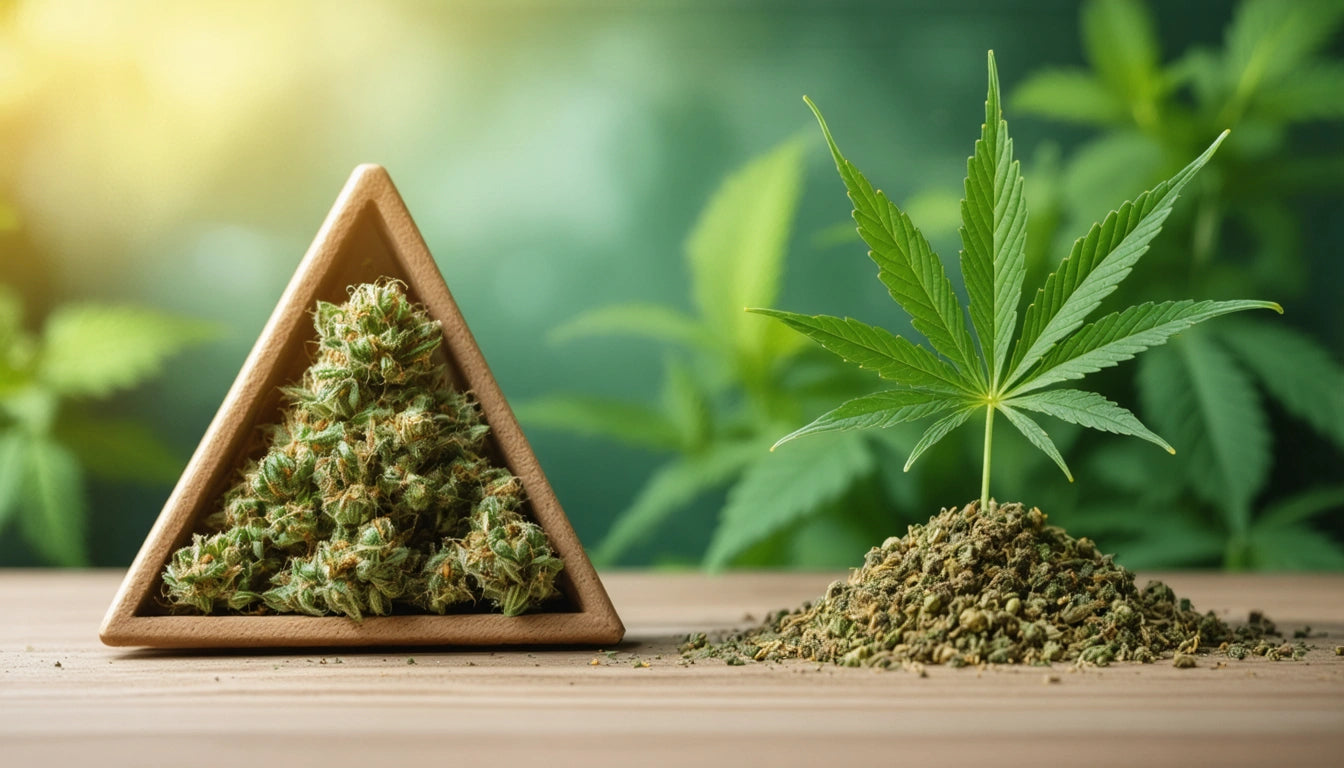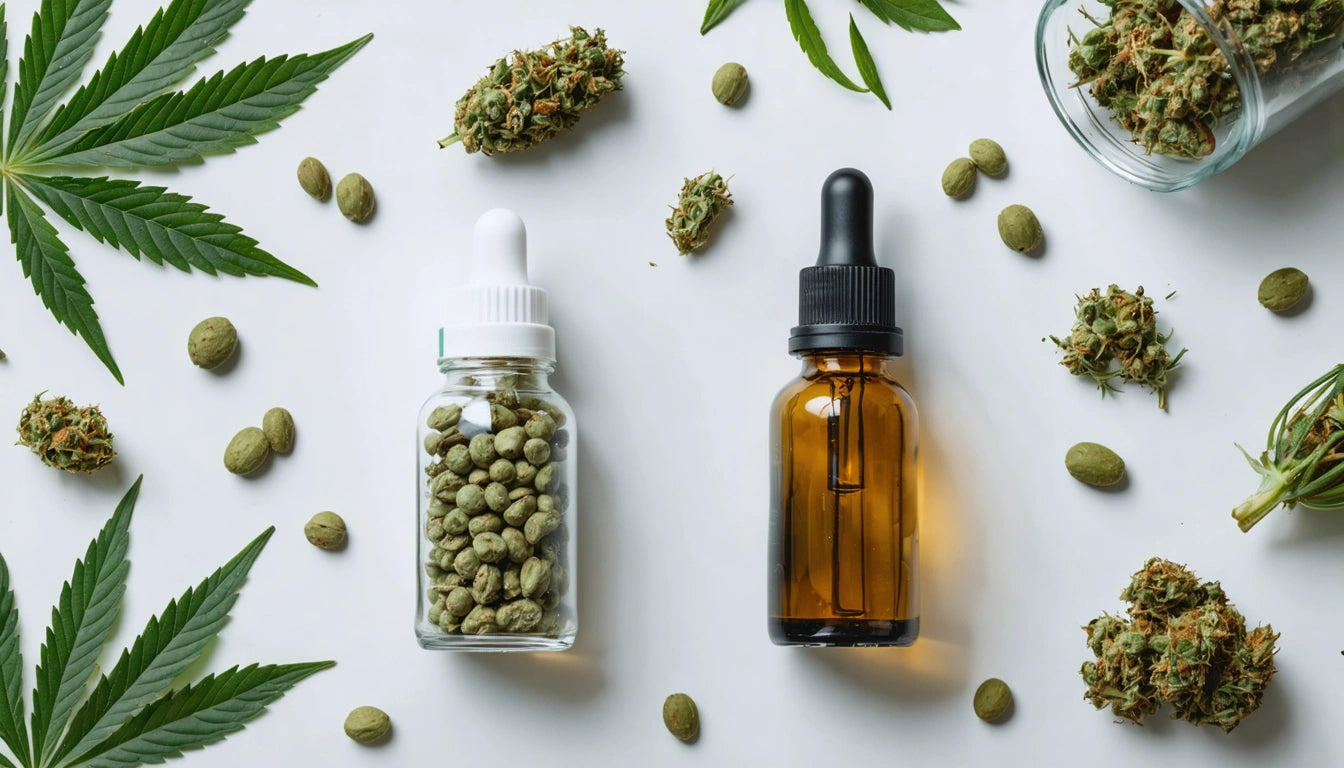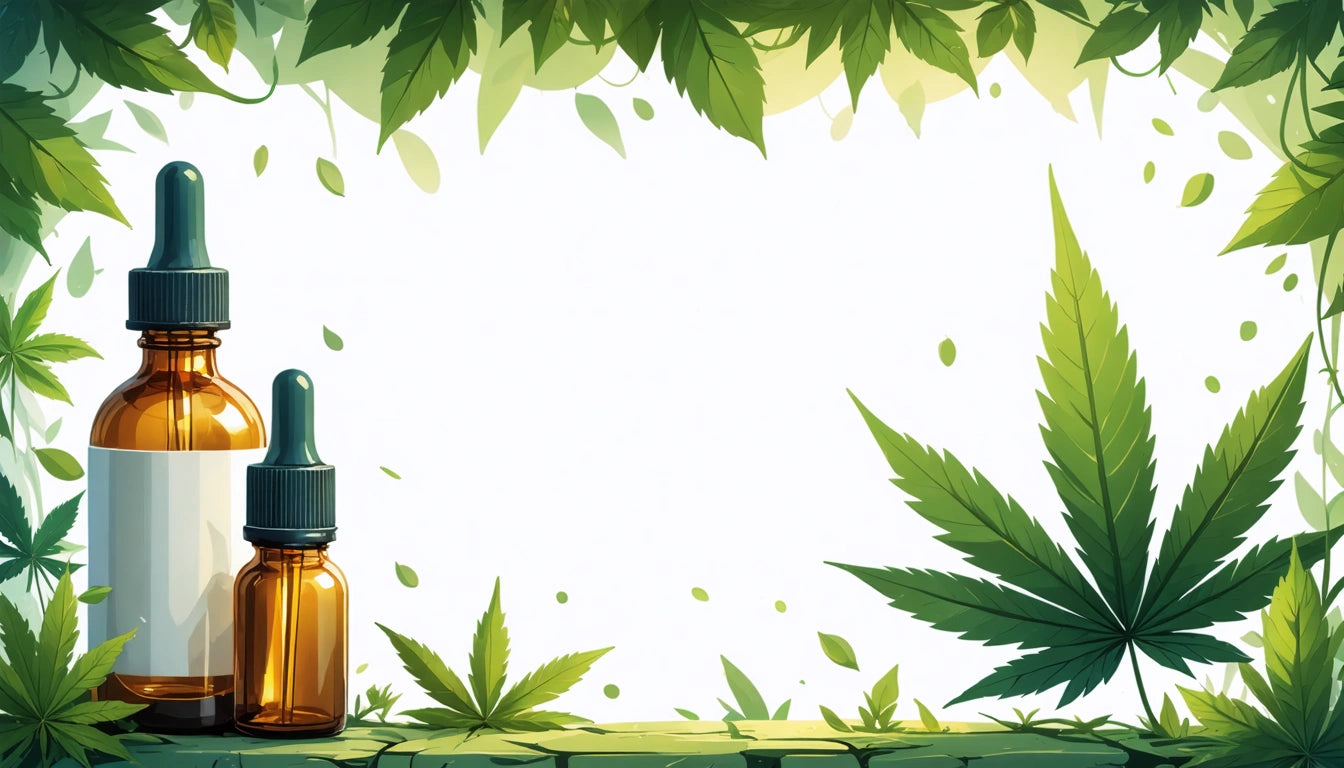Understanding the Differences: Delta 9 vs. Traditional Weed
The cannabis industry has evolved significantly with various products entering the market, creating confusion among consumers about what exactly differentiates delta 9 vs regular weed. While both contain THC (tetrahydrocannabinol), the primary psychoactive compound in cannabis, there are important distinctions in their sourcing, legal status, and effects that consumers should understand.
What is Delta-9 THC?
Delta-9 THC (delta-9-tetrahydrocannabinol) is the primary psychoactive cannabinoid found in cannabis plants. It's responsible for the characteristic "high" associated with marijuana use. When people refer to THC, they're typically talking about Delta-9 THC specifically.
This compound works by binding to cannabinoid receptors in the brain and central nervous system, producing effects that can include euphoria, altered sensory perception, and relaxation. Delta-9 THC is just one of over 100 cannabinoids found in cannabis plants, though it's typically the most abundant in traditional marijuana.
Delta-9 vs. Traditional Weed: Key Differences
When comparing delta 9 vs weed, it's important to understand that "traditional weed" refers to the cannabis plant (marijuana) that naturally contains various cannabinoids, including Delta-9 THC. Here are the key differences:
Source and Composition
- Traditional Weed: Comes from marijuana plants (Cannabis sativa with high THC content) and contains a full spectrum of cannabinoids, terpenes, and other compounds.
- Delta-9 Products: Can be isolated compounds derived from either marijuana or hemp plants, often with specific concentrations of Delta-9 THC.
Experience and Entourage Effect
- Traditional Weed: Provides what's known as the "entourage effect" where multiple cannabinoids and terpenes work together to produce the overall experience.
- Isolated Delta-9: May lack the full entourage effect, potentially resulting in a different experience than consuming traditional cannabis flower.
Hemp-Derived Delta-9 vs. Marijuana-Derived Delta-9
One of the most significant distinctions in today's market is between hemp-derived delta-9 vs delta-9 from marijuana plants:
Hemp-Derived Delta-9
Hemp-derived Delta-9 THC comes from Cannabis sativa plants containing less than 0.3% Delta-9 THC by dry weight. Manufacturers use specialized extraction and filling equipment to concentrate this small amount of Delta-9 THC into consumable products while maintaining compliance with the 2018 Farm Bill.
These products exist in a legal gray area in many states, as they technically derive from legal hemp but contain the same active compound found in marijuana.
Marijuana-Derived Delta-9
This is the traditional source of Delta-9 THC, coming from marijuana plants specifically bred for their high THC content. These plants and their derivatives remain federally illegal in the United States, though legal in states with recreational or medical marijuana programs.
The molecular structure of Delta-9 THC is identical whether it comes from hemp or marijuana. The difference lies in the legal classification and the accompanying plant compounds.
Effects and Potency Comparison
When considering what is the difference between delta 9 and regular weed regarding effects, several factors come into play:
Potency Considerations
- Traditional Cannabis Flower: Typically contains 15-25% Delta-9 THC along with other cannabinoids and terpenes.
- Hemp-Derived Delta-9 Products: Often contain precisely measured amounts of Delta-9 THC, sometimes at higher concentrations than found naturally in flower.
- Delta-9 Extracts: Can reach potencies of 70-90% THC, far exceeding natural plant material.
As this comparison of delta THC variants explains, the effects of Delta-9 THC can vary significantly based on dosage, consumption method, and individual factors.
User Experience
Many users report that delta 9 flower vs weed from dispensaries provides a somewhat different experience. This difference isn't due to the Delta-9 molecule itself but rather the presence or absence of other compounds:
- Traditional cannabis provides a full-spectrum experience with various terpenes and cannabinoids working together.
- Isolated Delta-9 products may produce a more one-dimensional effect focused primarily on THC's properties.
- Some users report hemp-derived Delta-9 products cause less anxiety than traditional high-THC cannabis.
Legal Considerations and Availability
The legal landscape for delta 9 vs real weed creates significant differences in availability:
Legal Status
- Traditional Marijuana: Federally illegal but permitted in states with recreational or medical programs.
- Hemp-Derived Delta-9: Technically legal under the 2018 Farm Bill if containing less than 0.3% Delta-9 THC by dry weight, though some states have enacted specific bans.
This distinction has created a complex marketplace where the legal status varies significantly by state. Some states have moved to restrict all forms of THC regardless of source, while others maintain the federal hemp distinction.
Testing and Regulation
Another important distinction between delta 9 from hemp vs weed concerns regulation:
- Dispensary cannabis undergoes strict testing for potency, contaminants, and pesticides in legal states.
- Hemp-derived products exist in a less regulated space, though reputable manufacturers still conduct third-party testing.
Future of Delta-9 Products in Cannabis Market
As the cannabis industry continues to evolve, the distinction between delta 9 vs cannabinoids from traditional cannabis may become increasingly important. We're likely to see:
- More refined hemp-derived Delta-9 products targeting specific effects
- Increased regulation of hemp-derived THC products
- Growing consumer awareness about the differences between various cannabis products
- Development of novel cannabinoid combinations leveraging both hemp and marijuana sources
Understanding what is delta 9 vs weed will help consumers make more informed choices as these products continue to proliferate in both traditional cannabis markets and mainstream retail channels. Whether seeking specific therapeutic benefits or recreational experiences, knowing the source, composition, and legal status of these products is essential for responsible consumption.











Leave a comment
All comments are moderated before being published.
This site is protected by hCaptcha and the hCaptcha Privacy Policy and Terms of Service apply.